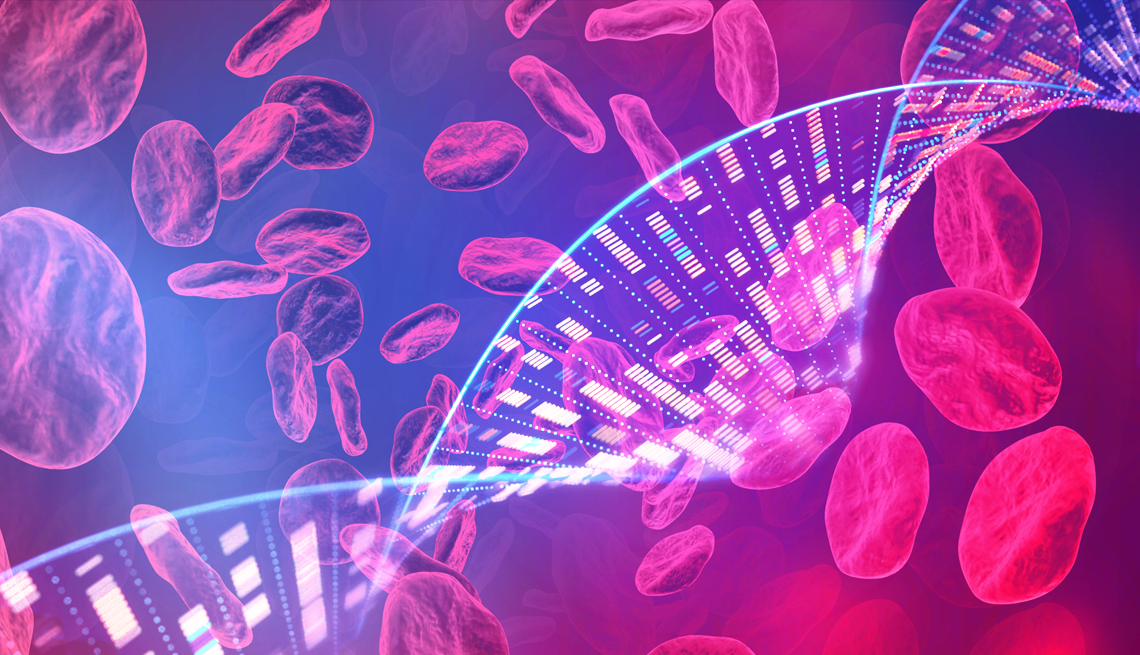AARP Hearing Center


High Blood Pressure Guide
- Symptoms, causes and tests
- Stages and types
- Treatment and prevention
- High blood pressure myths
- Alcohol and blood pressure
- Hypertension headache myths
- Smoking and high blood pressure
- Anxiety, stress and hypertension
- Is hypertension genetic?
- Medications that raise blood pressure
- Home blood pressure monitoring
- Surprising causes of hypertension
More than half of adults over age 50 have high blood pressure. After age 60, the number goes up to more than 70 percent of adults. Aging isn’t the only risk factor for high blood pressure. Your genetics and high blood pressure are linked too.
“Genetics does play an important role in the development of high blood pressure,” says Iftikhar Kullo, M.D., a cardiologist and former professor at the Mayo Clinic in Rochester, Minnesota. “We often see it run in families.”
But, he notes, families have a lot more in common than genes, and you can overcome most of your genetic risk for high blood pressure with a healthy lifestyle.
Is high blood pressure hereditary?
Research shows that genes may play a bigger role in hypertension than previously believed.
“The field has really exploded, propelled by what you call genome-wide association studies,” Kullo says. This is when researchers analyze the entire genome — all the genes — of very large groups of people to make connections between certain gene variants (permanent changes) and certain health conditions.
A May 2024 genome-wide study in the journal Nature Genetics analyzed the genes of more than 1 million people of European ancestry to find gene variants that the people with high blood pressure might have in common. The study found 113 variations in the genes associated with high blood pressure.
In a large percentage, geneticists can pinpoint specific locations on our DNA that contribute to high blood pressure. But some people don’t carry any gene variants known to raise their risk for high blood pressure. Some have one or a couple, and others carry many.
What is Monogenic Hypertension?
For the vast majority of people whose genes play a role in their high blood pressure, multiple genes are to blame. That’s called polygenic hypertension. But for a small group of people with high blood pressure, one gene passed down from a parent is enough to cause the problem. Several possible genes can cause monogenic hypertension, also known as familial hypertension, but they are rare. Typically, this kind of high blood pressure develops much earlier in life than the more common polygenic hypertension. It may also be more severe and harder to treat.
“If you have one variant, you might have a half a millimeter or 1 millimeter increase in blood pressure, so a pretty small effect,” Kullo says. But you can have more than one of these gene variants, and they can add up to raise your blood pressure more.
Using the gene variants discovered in the Nature Genetics study, researchers can calculate your relative genetic risk for high blood pressure based on the number of risk-raising gene variants you have. It’s called a polygenic risk score.
Polygenetic risk score tests aren’t offered regularly yet by health care providers because researchers are still creating guidelines on how to score them. But the National Human Genome Research Institute says polygenetic risk scores may one day become a regular part of how we manage our health care.





































































More From AARP
6 Blood Pressure Myths, Debunked
The truth behind the foods, drinks and habits that affect your numbersMonitoring Your Blood Pressure at Home
Why it's so important and how to do it right
8 Major Health Risks for People 50 and Older
A look at the top killers — and how to dodge them
Recommended for You